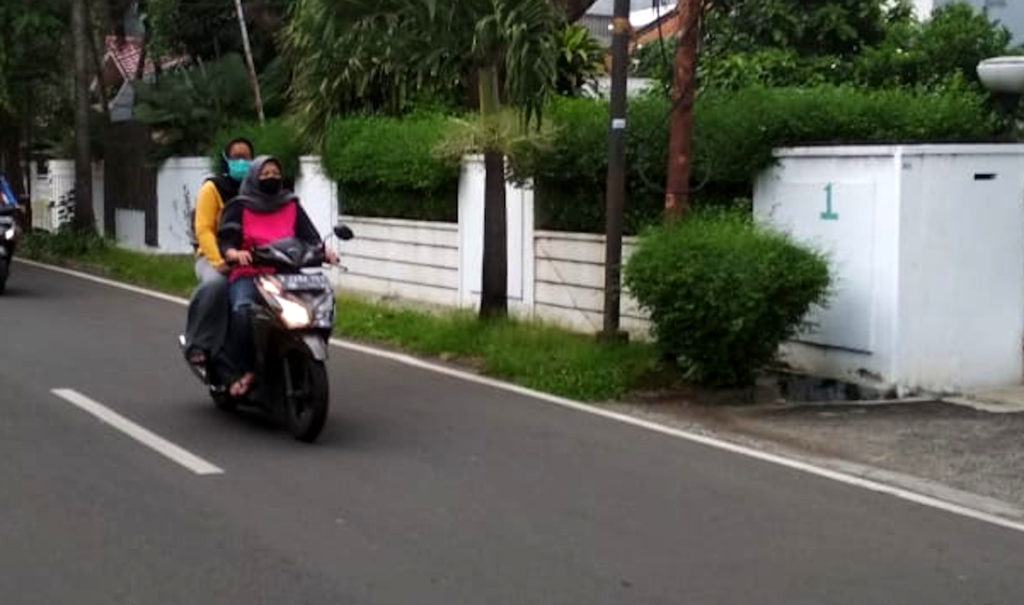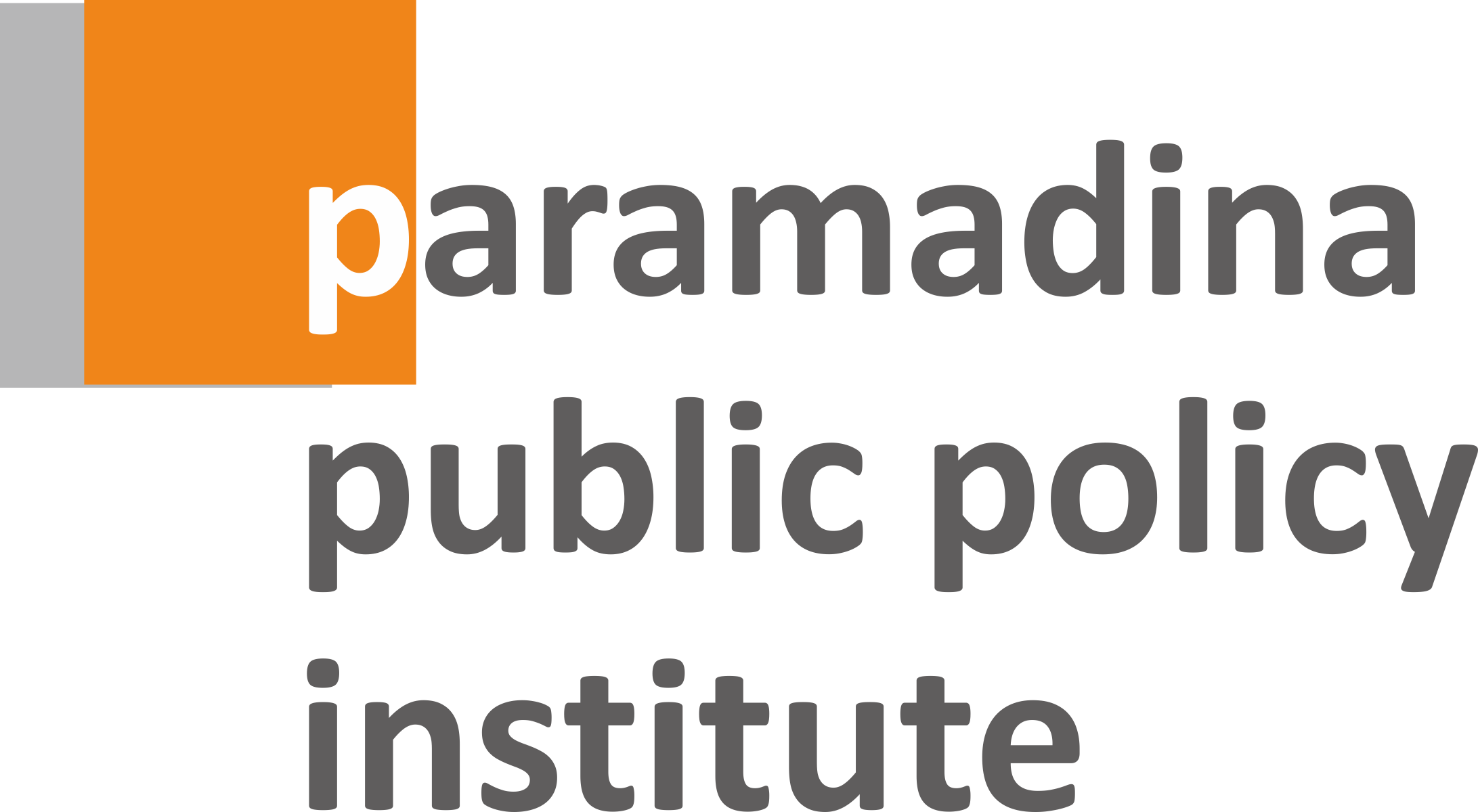
Muhamad Rosyid Jazuli and Ahmad Khoirul Umam
Paramadina Public Policy Review – 24 June 2020
If you take the time to stroll around kampong roads in Indonesia, or at least in Java, in this pandemic period, there is an interesting phenomenon. There are many motorcycle riders who wear masks passing by, but not putting on helmets.
Due to the spread of COVID-19, most local governments in Indonesia require people to wear masks when outdoors. It includes alfresco biking. The existing law, though, stipulates that those bike riders must wear helmets.
Even though both rules apply sanctions if breached, it is rather strange to see how the obligation of wearing masks based solely on local government regulations can be more adhered to than the mandatory by-law use of a helmet.
This phenomenon could reflect essential lessons for effective further Indonesia’s public policymaking.
Role-models
In some countries, Singapore, for example, the mandatory outdoor mask is regulated by law. In Indonesia, it is regulated by a governor or regent/mayor regulation such as Governor Regulation No 41/2020 in Jakarta and Mayor Regulation No 40/2020 in Padang City. If breached, people are subject to fines, but no imprisonment.
Even though the existing approaches are different, it is interesting to see leaders of countries appear routinely wearing masks, especially when in open space and on social media. President Joko Widodo, for example, on his Twitter and Facebook, can often be seen with a mask on during this pandemic. The Governor of Jakarta, Anies Baswedan, often appears wearing a mask, especially every time he gives a press statement.
Powered by scientific information from various credible organizations, such as WHO, these figures seem voluntarily campaigning for the use of masks. They are also willing to become role models of adherence to the mandatory mask regulation.
As a result, although wearing a mask is not regulated by law, like the use of helmet, the public seems enthusiastic to follow it. People even wear masks not only when in public service offices, but also when outdoor buying food from street snack vendors.
Making public policy a lifestyle
Theoretically, the Traffic Law No 22/2009 that requires mandatory helmet use should make Indonesians prioritize the use of helmets rather than wearing masks.
Globally, in terms of safe driving, a helmet is an undoubtedly important safety tool when driving a motorcycle. In some countries, New Zealand, for example, even bicyclists are required to wear helmets.
From a policymaking point of view, it is interesting to observe, even though the use of helmets and the mask wearing have relatively the same fines for breaching, they have different levels of public acceptance and obedience.
On the one hand, although only local government regulations support it, the mandatory use of masks comes with the support and recognition of various public figures ranging from the president, ministers, to actors and actresses.
Also, the regulation came in the sort of right momentum, which was the need to curb the COVID-19 spread.
Many figures from the public and private sectors voluntarily contribute to developing the narratives of how vital the use of the masks is. They help ensure people, at least from their bubble, to wear masks when outdoors.
Additionally, various narratives that masks protect the safety of not only individuals but human beings, specifically in the COVID-19 era, continue to be made and campaigned. With so many public discussions related to the new normalcy of the post-COVID-19, the use of masks may soon even become a new social convention for Indonesians when in open space and not feeling fit.
As a result, the enforcement becomes not only the responsibility of the law enforcers, especially the police, but also the civil society.
On the other hand, although supported by regulations at the highest level, examples of public figures are also minimal in terms of wearing helmets. On several occasions, even influential figures such as public officials were caught not wearing helmets when riding motorbikes.
The mandatory use of helmets often does not have enthusing narratives, such as for personal and other riders’ safety, and humanity. What is instead often conveyed by law enforcement is it is merely the duty of motorists, and that violating it is against the law.
Such a narrative is indeed dry, frightening, and does not attract public obedience. Indonesian traffic law has indeed been deemed ineffective in creating a safe driving environment.
Figuring out the driver
For policymakers in Indonesia, the dynamic above suggests that the making of laws and regulations, as well as their related enforcement are just the earliest steps of policymaking.
On various critical issues in Indonesia, such as safe driving, anti-corruption, and poverty alleviation, Indonesia surely has sufficient, if not too much, regulations and enforcement forces. However, due to the lack of narration and the lack of involvement of influential figures, who could become role models for the application of rules related to these issues, Indonesia is still slowly trudging to solve these problems.
This pandemic has indeed been the main driver of influential figures’ movements to create narratives about why it is necessary to use masks. Almost no one disputes, even from religious leaders, that this mask is vital in saving humanity.
Of the above social issues, there is no need to wait for the momentum, such as other pandemics, to figure out the driving force for the solution.
Traffic accidents, corruption, and poverty are a threat to human civilization. Indonesian leaders need first to realize the threat and make it a reliable driver to tirelessly build and campaign for related public policy narratives to tackle them.
For example, noble civilization and economic progress in Indonesia could never be realized without a safe driving environment, substantial anti-corruption endeavor, and persistent poverty alleviation.
Indonesia’s COVID-19 response: an example
Improvements in public policymaking can indeed be observed from how Indonesia handles this COVID-19 virus. In the early phases, related policy response policies were arguably less responsive.
In the initial phases, the Ministry of Health seemed to undermine this pandemic. Response policies were instead oriented towards economic matters rather than handling the impending grave public health repercussions. Providing tourism incentives were then prioritized rather than readying personnel and medical facilities.
Hitherto data on the virus spread for some reason, was not made transparent to the public. From some that were published, people could see that the data might not look valid, which arguably was deteriorating the crisis outlook.
Nevertheless, it must be appreciated that the government has gradually made better responsive decisions in the handling of this COVID-19 pandemic. Data is increasingly open and accessible to the public. In the dissemination of information related to corona, the responsibility was shifted from an officer often coming up with controversial statements to a discreet and well-tempered spokesperson.
The government is gradually taking heed of advice from experts and scientists. Community input through various channels such as opinion posts and comments on social media is also accommodated. As a result, community involvement and solidarity, for instance in being volunteers to help curb the COVID-19, look more enthusiastic.
After all, the formulation of regulations is only the beginning of a series of challenges to be addressed in policymaking. In crises like this pandemic, policy and decision making require leadership that is willing to learn and adapt expeditiously to the crisis dynamics, and to listen to the advice of experts and scientists in making decisions.
Influential figures in and outside the government need to become leadership examples, transforming themselves to be role-models committed to such expeditious, responsive public policies. (*)
The writers would like to thank Garry P. Poluan for his great contribution on proofreading this piece.
